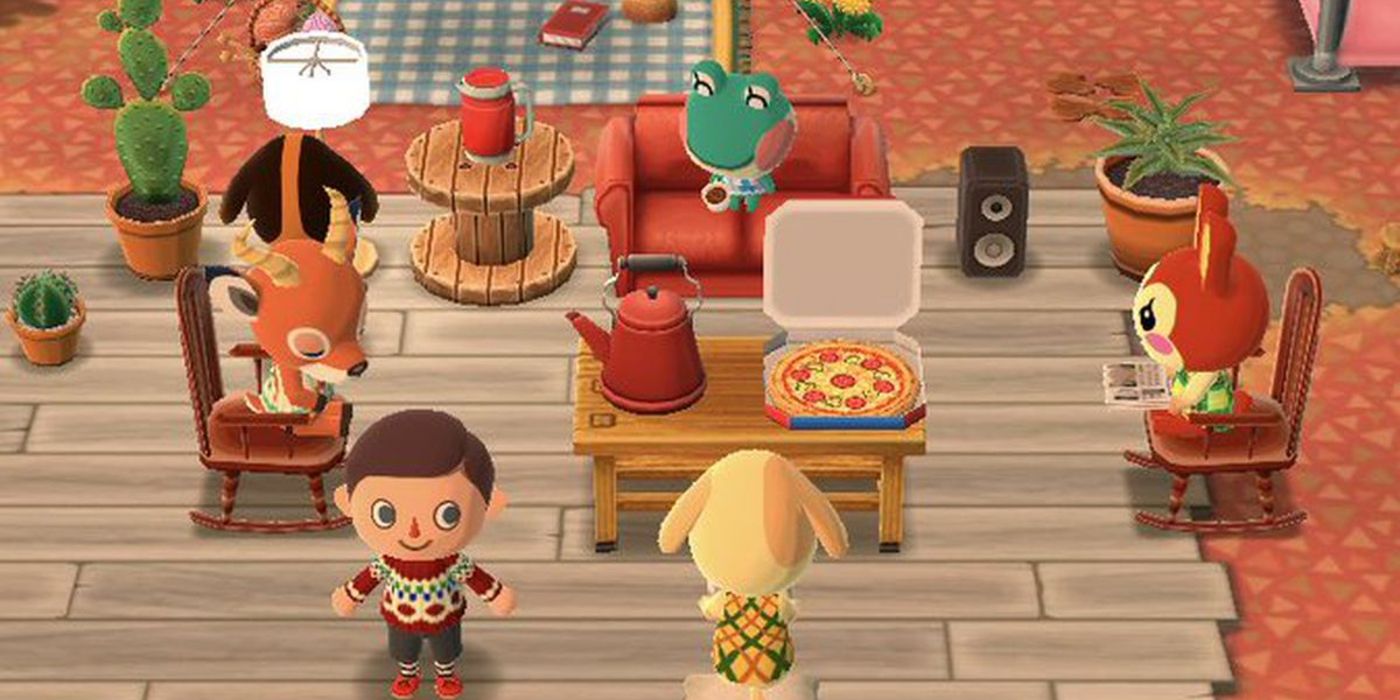

While the game fleshes out its world with some cute characterization via smartly-written animal monologues, that gets subsumed by the rush to get through yet another sequence of menus. Going through the trouble of clicking through these interactions starts to take on the feeling of an assembly line. The grind really sets in by the time you reach higher levels, when the number of characters requiring your interaction grows into the double digits. To add to the frustration, you’ll have to talk to each character four times to complete all of their requests and receive the corresponding prizes. The conversations themselves are purely utilitarian, a sociopathic reflection of office small talk. But conversations themselves require you to navigate through a swamp of menus and unskippable animations. Want to talk to a character? Of course you do, as that’s the only way to obtain in-game currency. The game is pure drudgery, more a sequence of menus than a place to explore. Pocket Camp never actually feels like escape. You can escape into a world that demands very little of you, where responsibilities come with a sense of accomplishment and emotional satisfaction. Maintenance games allow you to act out that fantasy. When everything gets to be a bit too much, you can pack your bags, get off the grid, and go out West. You learned about it from George and Lennie’s dreams of ranch life in Steinbeck’s Of Mice and Men, and you heard it from Bruce Springsteen’s entreaties that we “get out while we're young” in “ Born to Run.” Finding solace away from the rigidity of “normal” life has been a foundational myth in the canon of American storytelling for at least the past century. This kind of escape from labor is - in America at least - baked into the national psyche. The rest of the game presents the opportunity to frolic through orchards, beaches and lake beds, to pick fruit and catch butterflies for your animal friends. “Let’s say you’re on vacation starting tomorrow,” it asks as the game begins. It presents players with the narrative of escape, right from the start. Pocket Camp bills itself as a maintenance game. But the game’s progression system itself is usually geared toward slow, steady progress. It’s like an enjoyable appointment that you know will always yield some form of reward, even if that reward is an out-of-game feeling of relaxation. Maintenance games create a routine that rewards players with a sense of accomplishment and in-game progress. We’re tending to the game’s world as well as ourselves as we play. You tend to digital crops that yield fresh fruit every few hours, or ensure that your character gets a weekly reward by showing up and playing certain content by a certain deadline. “Maintenance” can refer not just to the personal time for maintenance that one is afforded when they play, but also to what’s happening in the game. The trend extends across genres, as these systems may have been popularized by mobile free-to-play games, but they can now be found in farming simulation games such as Stardew Valley and even first-person shooters such as Destiny. These games employ timers, countdowns or scheduled challenges that refresh on an hourly, daily or weekly basis. Many contemporary games have systems that are explicitly built around enjoyable repetition.

That’s close to a perfect definition, but I’d like to offer an addendum that accounts for how the word “maintenance” pulls double duty. He defined maintenance games as games that provoke a “quiet self-care enabled by the clean repetition of enjoyable motions.” Waypoint’s Austin Walker coined the term “maintenance games” in a podcast, and it’s a good way to describe the genre. Pocket Camp never lets you escape because it just ends up feeling like more work. However, there’s an overarching flaw that poisons the whole Pocket Camp experience: the absence of loveliness, surprise or delight.

Pocket Camp looked like a mobile game that could slot comfortably into players’ schedules, providing them with the time and space necessary to decompress and relax. Smaller games that offer quick and easy morsels of escape have become a meaningful part of our cultural diet as big-budget narrative games have become more demanding of our time and energy. Animal Crossing: Pocket Camp was supposed to be the ultimate distraction, a pocket oasis used to momentarily step away from the stresses of our lives.


 0 kommentar(er)
0 kommentar(er)
